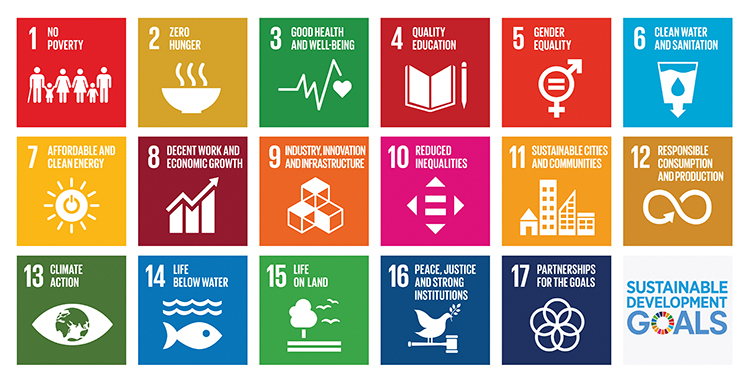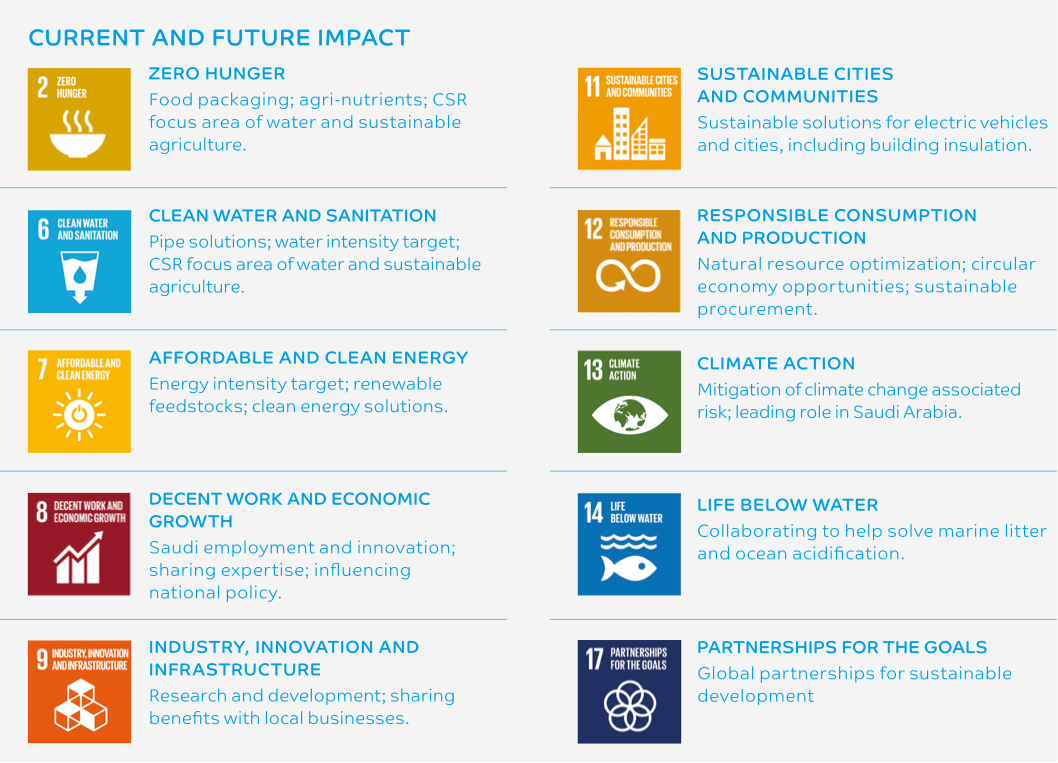Strategy
SABIC’s sustainability program guides our ambition to be the world’s preferred supplier of chemicals. Since 2009, we have improved our performance, identified significant challenges, and fostered collaboration.
Our strategic initiatives focus on the top six most material areas – those with the highest impact. In 2018, we refreshed our materiality process. Global trends influenced this shift. Focusing on these areas will drive performance.
SABIC is a global chemicals company. Ever-changing global markets and require agility. As a result, we are able to act upon increasing interest in the circular economy, information demands from stakeholders, concerns about plastic waste, and climate action.
We lead in chemical recycling. Implementing the circular economy improves material efficiency. In addition, our “solution space” of products, many with emissions savings, enable a sustainable world while satisfying customers.
This year, we unveiled our TRUCIRCLE™ portfolio with closed-loop solutions. And we increased chemically recycled feedstocks. We also achieved certification of our circular and renewable solutions.
Most regions have challenges. We would like to get more post-consumer materials back. This year, we developed our ELCRIN™ iQ portfolio of compounded resins, which upcycles discarded water bottles into higher-value materials for other sectors. We also unveiled a new LEXAN™ polycarbonate with a 63-percent lower carbon footprint. Innovations such as these require close collaboration with customers.
Bob Maughon

Executive Vice President Sustainability, Technology and Innovation, SABIC
Sustainability issues pose a risk to our value chain. However, SABIC views these issues as an opportunity, not a threat, because if we are resourceful, we can help to solve some of the world’s greatest challenges while becoming a better business. But the benefits of sustainability do not stop at innovation. A leader in sustainability will be a leader in the industry – and this is a goal that SABIC continues to pursue.
Climate change action impacts operations. We mitigate risk by embedding sustainability. Resource efficiency and health and safety, operational excellence and governance and integrity improve stakeholder value.
To increase efficiency, our Saudi affiliates are committed the Saudi Energy Efficiency Program (SEEP). We have completed over 170 initiatives with a total investment of more than US$1.2 billion to meet its targets.
SABIC has adopted the UN Sustainable Development Goals. With operations in 50 countries, we promote these goals globally. While doing so, we bring economic advancement.
SPOTLIGHT: SDG ROADMAP


